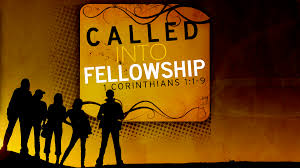Reflection: "The Be-Attitudes"The message we find in today’s reading of Matthew’s gospel is often called “The Sermon on the Mount” and it starts with something called “The Beatitudes”.
I like to call them the Be-attitudes, because Jesus is showing us how we should “be”. Jesus starts his sermon with “Blessed are the poor, the sad, the meek, the thirsty, the merciful, the sincere, the peacemakers, and those who are persecuted for their faith in Christ.” Near the end of the sermon, (read Matthew Ch 6), Jesus speaks with engaging, poetic words about the carefree birds of the air and the wildflowers in the field, followed by the admonition: “Your heavenly Father knows your needs before you ask him. Therefore, don’t be anxious. Don’t worry.” This is a call for complete trust in the graciousness of God. Jesus concludes this sermon of the highest ethical values - with an affirmation of the graciousness of God. Every sentence in the Beatitudes has echoes from Old Testament passages. Jesus, giving us these “new” Scriptures, was obviously well schooled in the “old” Scriptures. Matthew wants us to recall the story of Moses, who went up the mountain and came back to the gathered people with the commandments of God; the laws by which the people of Israel were to live. Jesus, on noticing the crowds that had gathered, went a little way up a mountain, to deliver his own manifesto - he was like the new Moses. Much of what follows through the subsequent verses and chapters is ethical teaching. It’s about how to live, loving God and loving one’s neighbour, but it goes much deeper than Moses. Jesus goes from the external (i.e. obedience to the law), to the matters of feeling and thinking. From outward observance - to motives and intentions. “You shall not kill” is extended to “You shall not harbour anger and resentment.” “You shall not commit adultery” is elevated to “You shall not harbour lust.” “An eye for an eye and a tooth for a tooth” is surpassed by “Turn the other cheek, love your enemies and pray for those who persecute you.” Jesus raised the religious and ethical bar to a new height. So much so, that if this were all there was to the “Sermon on the Mount”, then Jesus would have been thought of as just an extremist law giver, who made the burden of goodness even greater for us to carry. In fact, this extreme teaching had the potential to make the devout person even more anxious and desperate about their ability to please God. But that’s not the whole truth about Jesus - there’s something new here. A deeper and more hopeful message is present in his sermon. There are Old Testament echoes everywhere in what Jesus had to say. But they’re all with a new twist and a new message. Jesus pronounces God’s blessing on certain groups of people. “Blessed are........” That word “blessed” in the Greek text is makarios. For Greeks, it was originally used for the happiness of the gods. In the New Testament it refers to a God-given happiness. It’s hard to find a contemporary, English word to bring out the full impact of this blessing. Maybe it could be translated, “The meek have struck it rich!” or “How lucky are the meek, for they’ve hit the jackpot!” This would be okay as long as we see this kind of luck, not as chance, but as coming from God’s overflowing generosity. Whatever word we employ, the key point is that it describes the boundless joy which comes to those who follow Christ and completely trust in the kingdom of heaven. Have you noticed that the blessedness which Jesus affirms, is like a bonus? This blessedness is a free gift of God, and the recipients don’t have to do anything to earn this blessedness. Therefore, the Beatitudes are about God’s grace. You don’t have to do anything to earn this happiness. In truth, it can’t be earned, only received as a gift from God. It’s a pure gift - grace. This is in sharp contrast to the blessings of the Old Testament, where the happiness was conditional and people were urged to act or pray in a certain way, for only then would they receive blessedness. Psalm 15 offers readers a happiness which is totally dependent upon conditions. It depends on living blamelessly, speaking the truth, never gossiping, not seeking revenge, shunning reprobates, honouring God-fearers, never taking a bribe and keeping promises even though such integrity proves costly - conditional blessedness. However, the beatitudes of Jesus aren’t like that. There are no conditions to be met before someone can be called blessed. And why is it offered to these people? I mean, think about it, the people Jesus names as blessed, most certainly are not the people society considers blessed, which, come to think of it, is partly why Jesus chooses them. Because in this sermon, he’s not offering a recipe for success, or the keys to happiness, or a roadmap to having your best life now. Rather, he’s demonstrating once again that God regularly and relentlessly shows up just where we least expect him to be, in order to give to us freely what we can neither earn nor achieve: blessedness. I think that Jesus chooses these states, or conditions, to lift us up, because it’s precisely in our moments of disappointment, or despair, that we’re likely to finally abandon cultural stereotypes about blessing (understood as happiness, wealth, fame, or power) and be open to the presence of God that gives without asking in return and blesses us that we might be a blessing to others. There’s abounding grace for those who are poor, thirsty, sincere, merciful, and humble enough to simply receive it. Accept the gift of divine happiness, for that’s where things commence for the Christian - with God’s free, unconditional love. Now what are we going to do with this gift from God? We could just store it away and feel good – safe in the knowledge that we’re blessed by God. But I don’t think that’s why God gave you the gift, is it? Instead, he wants us to do something with it - to be a blessing to others in the actions we take. In prayer, ask God what it is that you can do for others in the Kingdom and then go out and bless others. Pastor Rick
0 Comments
Reflection: "Who Should we Follow?"As I’m sure you’re aware, we’ll celebrate Australia Day next Thursday and I’m guessing that it’ll mean different things to different people.
Officially it marks the anniversary of the 1788 arrival of the First Fleet of British ships at Port Jackson, New South Wales, and the raising of the flag of Great Britain at Sydney Cove by Governor Arthur Phillip. To some, that meaning has gotten a bit lost and to some, it’s just a good excuse for another public holiday. To our aboriginal brothers and sisters, it has a much darker significance, but we don’t have the time to fully delve into that today, other than to recognise the pain that it causes them. So, what have we, as a nation, learned in the last 235 years? Have we learned how to stand on our own feet and not be reliant on the nation that sent those convicts, soldiers and sailors to our shores so many years ago? We still have a tenuous link to Great Britain and the US is a great ally, but, essentially, we are self-governing and we follow the laws and statutes set down by our own politicians. So that raises a question for me - who should we follow? Should we follow everything that Canberra dictates? Do we follow the state of NSW? Prior to 1788, the aboriginal people were the only custodians of the land, but since then, Australians have come to this land from a variety of backgrounds, cultures and religions. Today we are a mixture of all these peoples, ancient and modern and we must all learn to accept each other’s differences and embrace them. The Apostle Paul, in his first letter to the fledgling church in Corinth, urged the people not to get distracted by following any one particular cult leader, but, instead, to focus on the gospel message - that Christ died for us. I would hope that, as Christians today, we can see that our primary role is also to follow Christ – and all that he teaches us through the bible. However, as we find in this week’s readings, it isn’t as straightforward as it seems. Sometimes people can be distracted by one religious denomination or another, professing that it has the “right” message. It can even happen within congregation, when one person, or group, seek the be the owners of “the way” to do things. Often, like in Corinth, these groups are seeking to sway people to their brand of Christianity and are forgetting the main message of the cross – that Jesus Christ is the one we follow – and no-one else. Reconciliation with God must surely mean reconciliation with others. Paul lived his life from the logic of that gospel. It left room for disagreement and for diversity, but certainly not for factionalism. Paul saw no place for loyalty towards himself, or anyone else, because it just got in the road of true faith. In one sense it was a problem of idolatry. The Corinthians were putting certain leaders into a place that really belonged only to God. In that sense they were becoming 'cult figures'. In today’s gospel reading, we encounter Jesus saying to Andrew, Peter, James and John, by the Sea of Galilea, “Follow me, and I will make you fish for people.” This simple, yet profound, command began a remarkable transformation in the Western World. Like cells dividing, Jesus, the one human form of God, became the four fishermen and then the 12 apostles. The 12 became 500 disciples, the 500 became thousands, and thousands became millions of Christians – all over the world. Serving as a Jesus-kind of fisherman is called evangelism. That is, sharing the Good News about Jesus by helping others find and live by the power of God’s love. It’s helping them learn how to share, with more people, what it is that they’ve found in our joyous and meaningful faith. But just how DO we fish for people? Like fish, people exist as many varieties. To become successful fishers of people, we can do well by copying good fishing techniques. Firstly, we need to develop a plan that will attract them - because we want to share the same love that we have come to know in the Lord. We need to recognize, and take into account, individual differences, perspectives and cultures. We also need to remember that those of varying ages and generations were formed in distinctive historical eras and, consequently, they will often respond differently and have separate characteristic needs. Those we seek must be approached with the kind of respect and care that honours both their dignity and their differences. We share with others the value of what we have found in following Christ, becoming conscious of where the needs of others lie, using appropriate methods, taking care about proper timing, and seeking repeatedly to learn how other people think and communicate. Just as a fisherman cannot force a fish to be caught, we must also try to draw others into the Christian circle, not by coercion, but by loving attraction. We must constantly study, practice and experiment, as we strive to present the gospel in such a way that it becomes clear, understandable and meaningful to them. We need to find the best method to feed them spiritually, so they can grow within the faith. Then, in their own ways, they can continue the process that Jesus began with Peter and Andrew and James and John - as the newest in the spiritual chain of cell division, reaching out to others and expanding the great body of Christian disciples. Maybe for us, the best example of fishing comes from the “catch and release method,” following the principle that a fish is more valuable in the water, than on the angler’s dinner table. Let’s imagine ourselves as Christians engaging others in the faith, helping them stay alive in the faith, caring for them and teaching them to know the Divine One who loves us all. Then, imagine yourself respecting them, regardless of how they choose to respond to our help, in bringing them to a deeper knowledge of God, regardless of how they live out the faith we now share. Does it seem to be what Jesus means for us to do? Is it what he intended for Peter and Andrew and James and John? Certainly, he didn’t want his disciples to take advantage of anyone they “caught”, but to embrace and serve them. The church’s task – as fishers of people – is to find the best ways to invite others to Christ, offering them what we have and letting them prosper if they choose to remain in our environment. We can follow Jesus’ call by meeting them where they are and fostering ministries and activities that are suitable for their needs. Eventually, we can offer them the opportunity to serve God and others as they deem best. We do this because we understand that Jesus calls us into the most precious ministry there is: fulfilling the mission of the church, which we say is “to restore all people to unity with God and each other in Christ.” As fishermen for Christ, we can gain strength in this task by remembering first the needs of others and praying always the words of this prayer: “Give us grace, O Lord, to answer readily the call of our Saviour Jesus Christ and proclaim to all people the Good News of his salvation. That we and the whole world may perceive the glory of his marvellous works. This we pray in the name of the one who lives and reigns with you and the Holy Spirit, one God, for ever and ever.” Amen. Pastor Rick Reflection: |
Pastor
|
LANE COVE
|
Worship Service:9:30am Sunday
© Lane Cove Uniting Church | 2020
|






 RSS Feed
RSS Feed